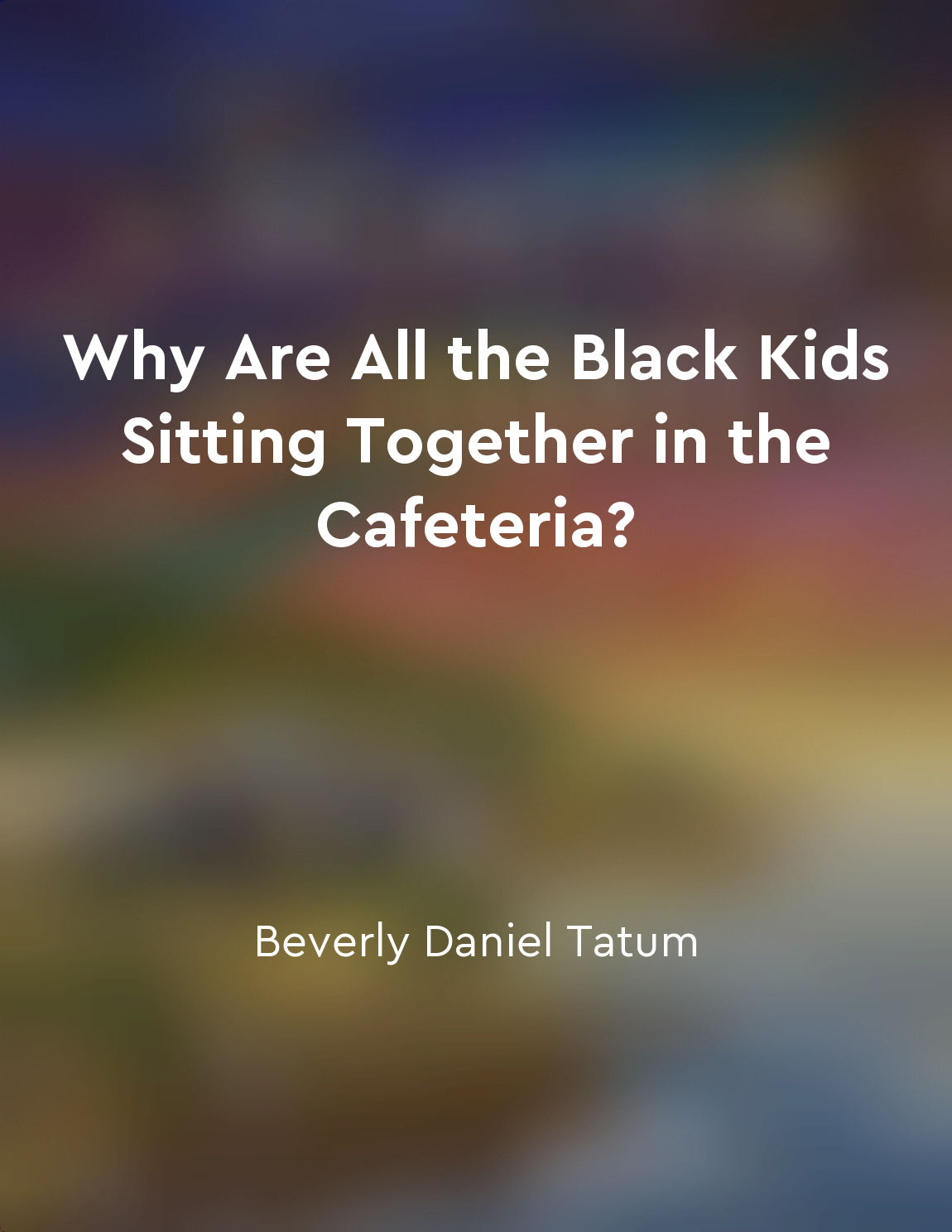Schools serve as agents of cultural transmission from "summary" of Schools and Society: A Sociological Approach to Education by Jeanne H. Ballantine,Joan Z. Spade
The concept of schools serving as agents of cultural transmission is central to understanding the role of education in society. Schools play a critical role in passing down cultural knowledge, values, beliefs, and norms from one generation to the next. This process of cultural transmission helps to shape individuals' identities and socialization, as well as maintain continuity and cohesion within a society. Through the curriculum, textbooks, and teaching practices, schools impart cultural knowledge to students. This includes teaching subjects such as history, literature, and art that reflect the values and beliefs of a particular society. For example, students learn about the founding fathers of their country, famous works of literature, and key events that have shaped their nation's history. By learning about these cultural touchstones, students gain a sense of shared identity and belonging within their society. In addition to academic subjects, schools also teach cultural norms and values through informal processes such as peer interactions, extracurricular activities, and school rituals. For instance, students learn how to behave in a classroom, interact with teachers and peers, and participate in school events. These unwritten rules and expectations help to socialize students into the broader cultural norms of their society, such as respect for authority, cooperation, and punctuality. Furthermore, schools serve as sites of cultural conflict and negotiation, where different cultural perspectives and values may come into tension. For example, schools in multicultural societies must navigate the challenge of teaching a diverse student body with varying cultural backgrounds. This can lead to debates over which cultural knowledge and values should be prioritized in the curriculum, how to address issues of inequality and discrimination, and how to create an inclusive and equitable learning environment for all students.- The concept of schools as agents of cultural transmission highlights the integral role of education in passing down cultural knowledge, values, and norms within a society. By understanding how schools shape individuals' identities and socialization, we can better appreciate the complex ways in which education influences and reflects broader cultural dynamics.
Similar Posts
Building bridges across differences strengthens our communities
The idea that bringing people together from diverse backgrounds can actually make our communities stronger is a powerful one. W...
Teachers can empower students through critical pedagogy
Critical pedagogy is a powerful tool that teachers can use to empower their students. By critically examining the structures of...
The unconscious mind plays a significant role in decisionmaking
One of the key insights we can glean from psychological research is the idea that much of our decision-making actually takes pl...
General knowledge improves communication abilities
Having a strong base of general knowledge can significantly enhance one's communication abilities. This is because possessing a...
Teachers need to learn from each other
One key idea that emerges from our study is the importance of teachers learning from one another. We found that the most succes...
Poverty exacerbates educational disparities
Poverty has a significant impact on educational disparities. When students come from impoverished backgrounds, they face numero...
Art and literature reflect societal values
Art and literature provide a mirror to society, reflecting the values that are most cherished and revered by a particular cultu...
Culture shapes individuals' identities and behaviors
Culture is not simply a set of customs or traits that individuals passively absorb and exhibit. It is a complex system of symbo...

All students deserve to feel valued and supported
In a diverse educational environment, it is essential that all students feel valued and supported. This means creating a school...
Culture is learned through socialization processes
The transmission of culture from one generation to the next is not a straightforward process but rather a complex and intricate...

